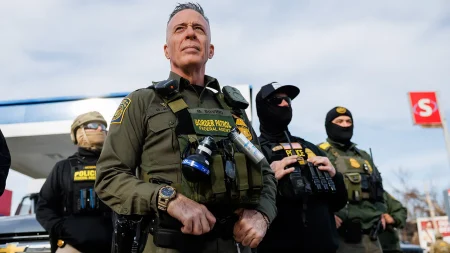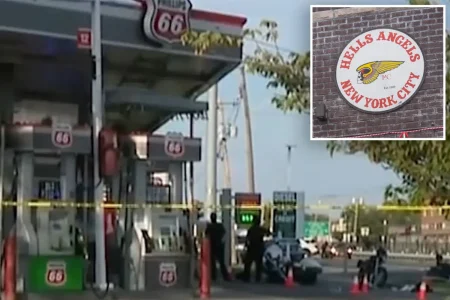Six Hostage Bodies Recovered from Gaza: A Humanitarian Crisis Continues
Families Still Waiting for Closure as Recovery Operations Continue
In a somber development that underscores the ongoing humanitarian tragedy unfolding in Gaza, recovery teams have retrieved the remains of multiple hostages from the war-torn enclave. The bodies, which were recovered in a delicate operation conducted under challenging circumstances, have not yet been identified according to official sources close to the situation. The discovery marks another painful chapter in the conflict that has devastated the region and left countless families in anguish as they await news of loved ones.
The recovery comes just days before a scheduled handover on Tuesday, during which Israeli authorities confirmed that the bodies of three additional captives remain somewhere within Gaza’s borders. This partial recovery highlights the complex and often heartbreaking process of accounting for all those taken during the initial attacks and subsequent conflict. Security experts familiar with hostage situations note that the identification process involves meticulous forensic work, often including DNA analysis, which explains the delay in providing families with definitive answers about their missing relatives.
“The process of identifying remains in conflict zones presents unique challenges,” explained Dr. Miranda Cohen, a forensic anthropologist who has worked in multiple conflict zones. “Environmental factors, the condition of the remains, and access to proper facilities all impact how quickly identifications can be made. What we must remember is that behind each case is a family desperate for answers.” These families have been living in a state of suspended grief since the hostage crisis began—unable to mourn properly without confirmation, yet increasingly fearful as time passes without positive news about their loved ones.
The Broader Context: Humanitarian Impacts and Negotiation Efforts
The ongoing hostage situation represents just one facet of the wider humanitarian crisis that continues to unfold in Gaza. International aid organizations report that essential services remain severely compromised, with hospitals operating well beyond capacity and critical shortages of medical supplies, clean water, and food. These conditions not only complicate rescue and recovery operations but also intensify the suffering of Gaza’s civilian population, who find themselves caught in the crossfire of a conflict with no clear resolution in sight.
Diplomatic efforts to secure the release of remaining hostages have intensified in recent weeks, with multiple countries serving as mediators in the delicate negotiations. These talks face numerous obstacles, including shifting security situations on the ground, political considerations from all parties involved, and the emotional weight carried by families of the missing. International humanitarian law experts emphasize that hostage-taking violates fundamental principles of warfare, yet achieving accountability remains challenging in a region where cycles of violence have become deeply entrenched.
The psychological impact on families of hostages cannot be overstated. Support groups have formed to provide counseling and advocacy, creating communities united by shared trauma. “The uncertainty is perhaps the most difficult aspect to bear,” said Rachel Goldstein, a psychologist specializing in trauma and grief. “Families exist in a liminal space between hope and despair, clinging to possibilities while preparing themselves for the worst possible news.” This psychological burden extends beyond immediate family to affect entire communities, contributing to collective trauma that will likely require years of healing.
Recovery Operations: Challenges and Coordination
The recovery of remains from active conflict zones involves intricate coordination between military personnel, humanitarian organizations, and forensic experts. Sources familiar with the operations describe a process fraught with danger, where recovery teams must navigate unstable buildings, unexploded ordnance, and shifting front lines. These operations often require temporary cessations of hostilities—delicate arrangements that can collapse with a single security incident or misunderstanding between parties.
International humanitarian organizations have repeatedly called for protected humanitarian corridors to facilitate both hostage releases and recovery operations. “Every recovery operation requires precise timing and clear communication between all involved parties,” explained Michael Reeves, a former humanitarian coordinator with experience in conflict zones. “The smallest miscommunication can jeopardize not only the mission but also the lives of those carrying it out.” These operations function against a backdrop of diminishing infrastructure, with damaged roads and communication networks further complicating already challenging circumstances.
The technology employed in recovery efforts has evolved significantly, with teams now utilizing everything from ground-penetrating radar to specially trained canine units. However, experts caution that no technology can fully replace the human element—the careful negotiations, cultural understanding, and compassionate approach needed when handling such sensitive matters. The physical recovery represents just the beginning of a longer process that includes identification, notification of families, and eventually, repatriation of remains to allow for proper burial according to cultural and religious traditions.
International Response and Future Implications
The international community’s response to the hostage situation has varied widely, with some countries providing direct assistance in negotiations while others offer technical support for identification and recovery. Human rights organizations continue to monitor the situation closely, documenting potential violations of international humanitarian law and advocating for the protection of all civilians caught in the conflict. These organizations emphasize that regardless of political positions, the humanitarian aspects of the crisis—including the return of remains to families—should transcend political differences.
Looking forward, conflict resolution experts suggest that how this hostage situation is resolved could have significant implications for future peace negotiations. “The handling of hostages and remains often becomes a focal point in broader peace discussions,” noted Dr. Sarah Abrams, an international relations professor specializing in Middle Eastern conflicts. “These most human elements of conflict can either build trust between parties or deepen divisions that make future reconciliation more difficult.” This perspective underscores the importance of handling recoveries with transparency, dignity, and respect for all families involved.
As attention focuses on the immediate crisis, humanitarian workers warn against forgetting the longer-term needs of the region. Recovery from conflict involves not just the physical rebuilding of infrastructure but also addressing psychological trauma, establishing accountability, and creating pathways toward reconciliation. The recovery of hostage remains, while immensely significant for the families directly affected, represents just one component of the comprehensive approach needed to address the multifaceted impacts of the conflict.
Moving Forward: Remembrance and Accountability
As identification efforts continue for the recently recovered remains, families of those still missing continue their agonizing wait. Support networks have organized vigils and remembrance ceremonies, creating spaces where grief can be collectively expressed while maintaining pressure on authorities to continue search and recovery efforts. These gatherings serve multiple purposes: honoring those lost, supporting families in their ongoing ordeal, and ensuring that public attention remains focused on resolving the hostage situation.
The question of accountability looms large over the entire situation, with multiple international bodies considering investigations into the circumstances surrounding hostage-taking and the treatment of captives. Legal experts note that while international humanitarian law clearly prohibits hostage-taking, achieving justice in conflict zones presents substantial challenges. Documentation efforts continue nevertheless, with human rights organizations collecting testimonies and evidence that may eventually support future accountability processes.
For now, as the world awaits confirmation of identities from the recently recovered remains, the focus remains on the humanitarian aspects of the crisis. Each recovery, while devastating in confirming deaths, provides families with the possibility of closure—the chance to properly mourn and honor their loved ones according to their traditions and beliefs. As one family member of a missing person expressed, “All we want is to bring them home, to have a place to visit, to know that their journey has ended.” This simple, profoundly human desire transcends the politics that so often dominate discussions about the conflict, reminding us of the individual tragedies that make up the larger catastrophe.
As Tuesday’s handover approaches, attention will inevitably turn to efforts to recover the three remaining captives confirmed to be in Gaza. For their families, and for all those still waiting for news of missing loved ones, each day brings both renewed hope and deepening anxiety—a painful limbo that only resolution of the broader conflict can truly address.








